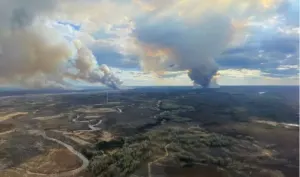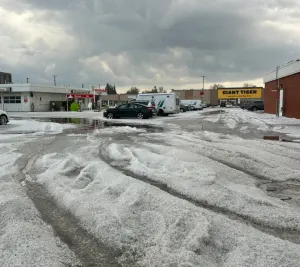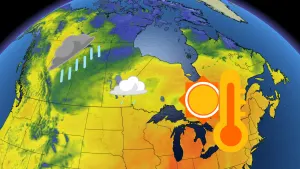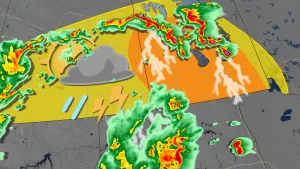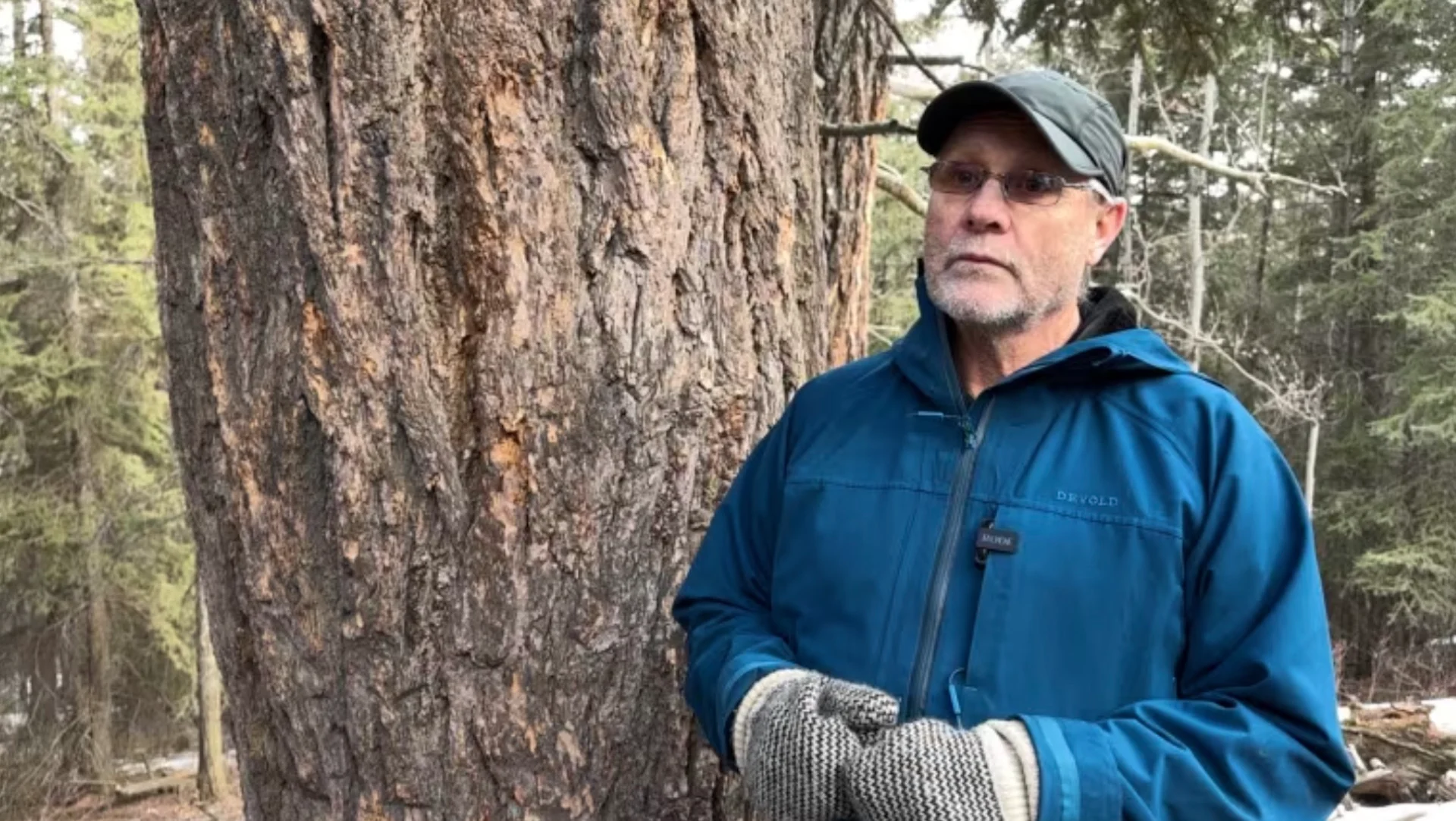
Hotter, drier summers in future are the biggest stressor for Calgary trees
Tree experts in Calgary say the changing climate and drought conditions are the biggest factors when it comes to the future health of the city's non-native trees.
Long-time arborist Kevin Lee says it's not the wild weather swings and chinooks over the winter months that stress trees out. He says a loss of moisture, poor suburban soil conditions and more searing hot summers are more of a concern.
SEE ALSO: More trees aren't the solution to climate change
"The conditions in this part of southern Alberta have always been radical, extreme, and from a tree's point of view, almost dangerous," he said. "But it's nothing new in the Calgary area."
Lee says trees are masters of adapting to wild winter weather but can struggle in hot, dry periods.
"I think the big impact is much more seen by our summer weather. We have hotter periods, for longer and with less moisture. It's getting hotter and it's getting drier," said Lee.

(Connor O'Donovan/The Weather Network)
Most of the seven million trees in the city aren't a natural feature. They were introduced from other parts of the country and world, with some faring better than others.
"There's one species that really has no business being here. It's from Europe and Asia: the cutleaf weeping birch. It's the most delicate tree that grows in Calgary, and hundreds, if not thousands, have died in the last few years," said Lee.
"Happiness in trees is almost always about the tree having a good, steady, regular source of water. The drought of the last four to five years has been significant. It's serious and there's indications that here in 2024 we'll go into our fourth year of extreme drought."
The City of Calgary says it already has a long-term plan for the city's trees, which takes the changing climate into account. That plan includes planting different types of trees in the future to adapt to the changes.
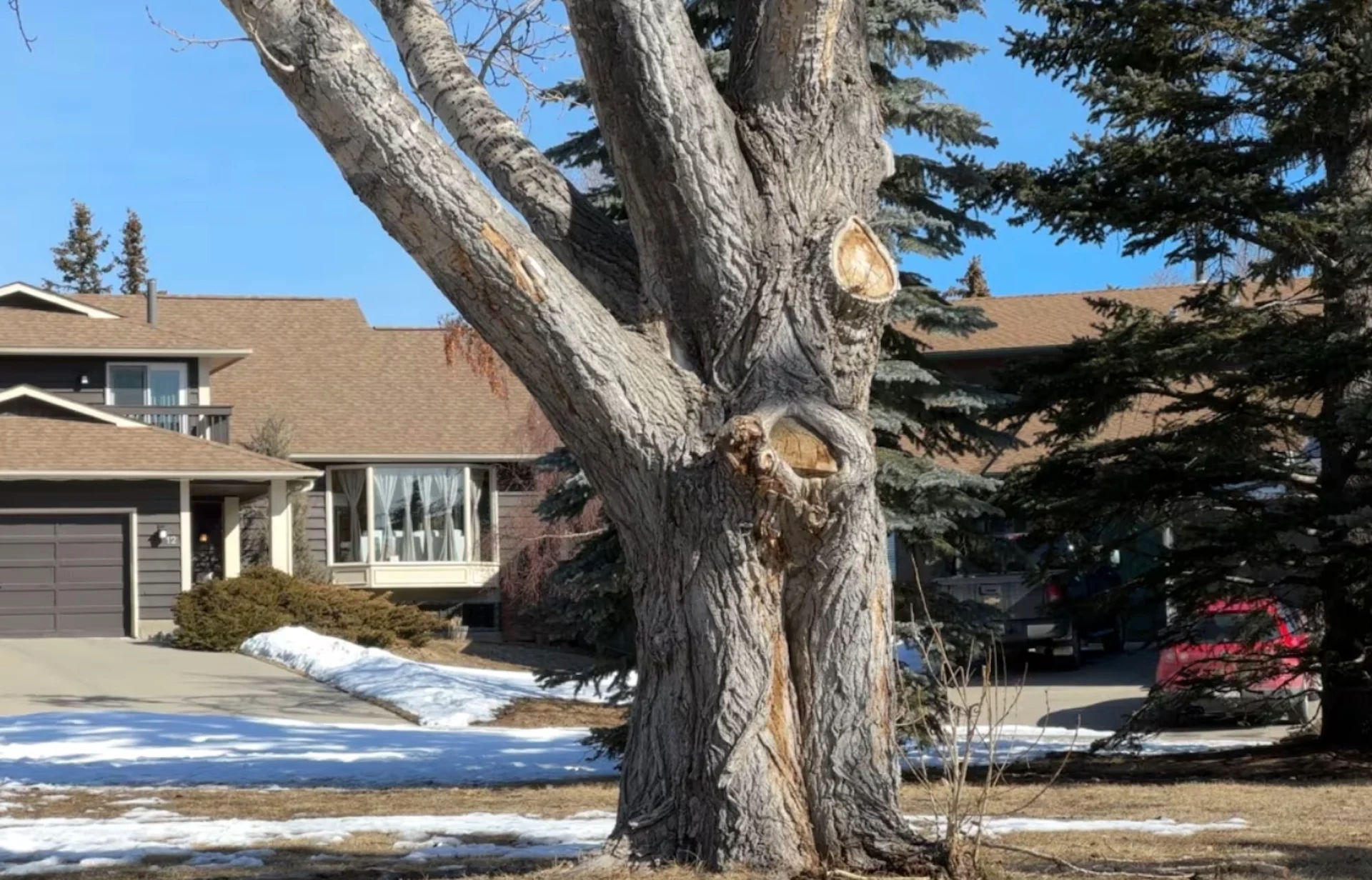
An older, mature tree stands in a southwest Calgary neighbourhood. (Dan McGarvey/CBC)
"The rule of thumb is that if a tree can grow here, it will. But moisture loss is the biggest threat," said Anna Blaxley, who works in the City of Calgary's parks and open spaces department.
She says stressed out trees can reduce the amount of leaves they grow, produce less fruit and may go dormant earlier in the season to cope.
"We know the climate is changing and parks is looking at other species that might be able to grow in Calgary, where we wouldn't have been able to grow them before, such as oak and maple varieties," she said.
Blaxley says the long-term tree plan covers the next 200 years.
"That might seem like a long time, but that's really only one or two generations of trees. So we're planning a future for Calgary. We're not thinking like people, we're thinking like trees," she said.
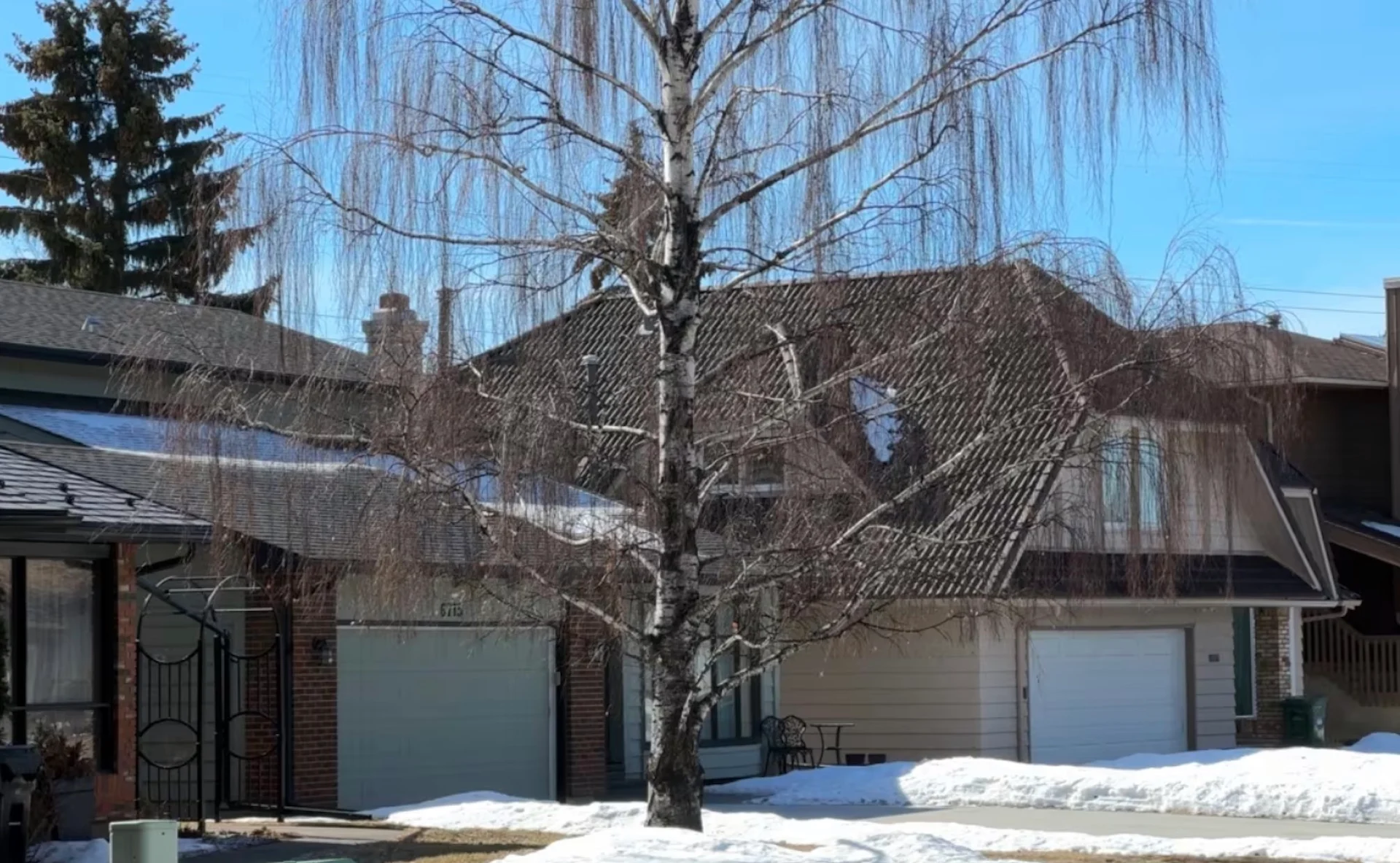
A non-native tree — thought to be a cutleaf weeping birch — stands in the yard of a southwest Calgary home. Trees like these are more likely to struggle with hotter, drier summers. (Dan McGarvey/CBC)
Blaxley says trees need to be awake and growing before they need to be watered. She says people can shovel leftover snow toward the bases of trees to get them off to a good start in the spring.
She says people can find out more about trees in the city at Calgary.ca/trees.
WATCH: Is this the real tree featured on the Canadian penny? How to identify it in the wild
Thumbnail courtesy of Dan McGarvey/CBC.
The story was originally written by Dan McGarvey and published for CBC News.






